Photo

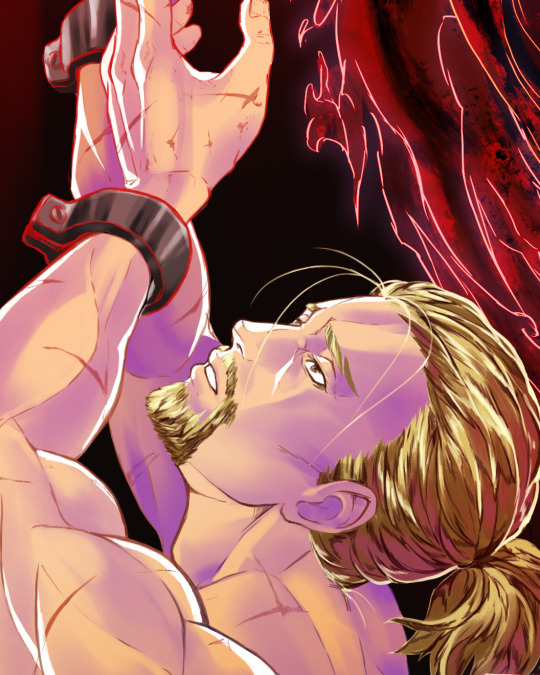
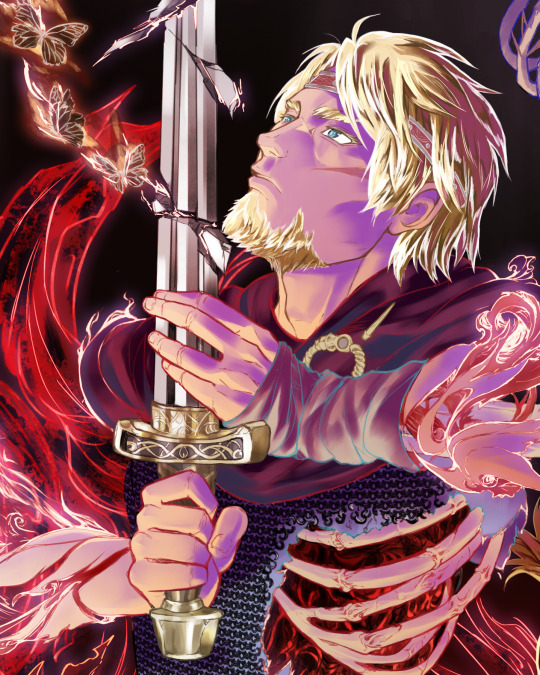
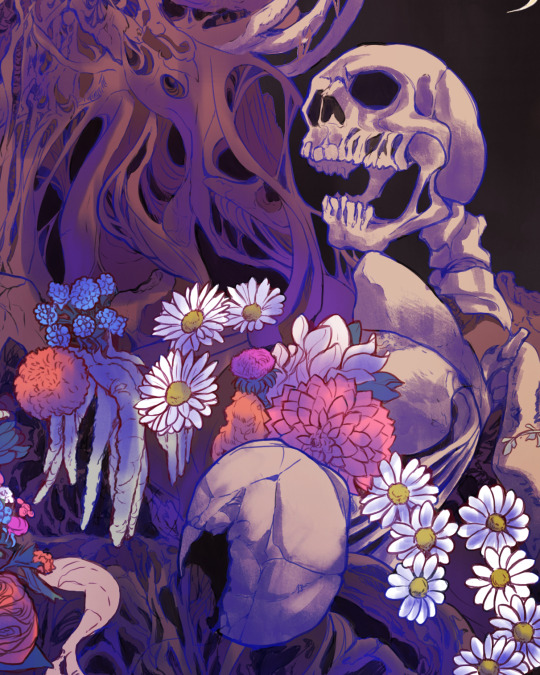
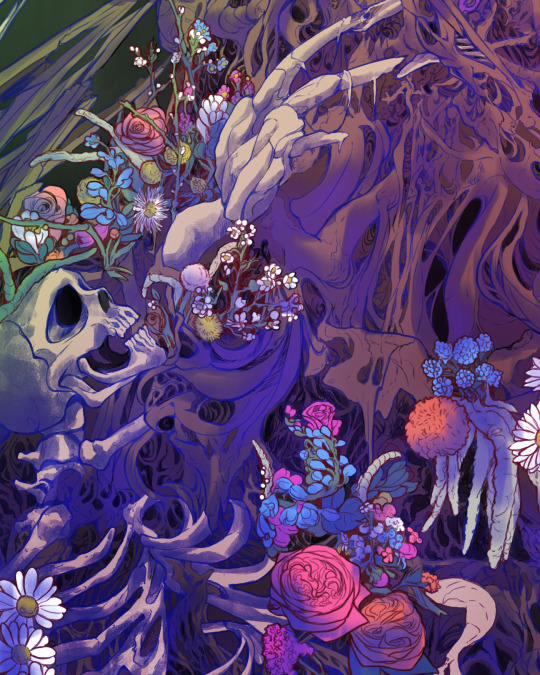
Season 2 of Vinland Saga has been everything I could have wished for. I’ve written before about my thoughts of season 1, and everything still stands but more so. Every frame of the show has been so beautiful and cinematic in a way that anime just doesn't get the chance to be now days. I really get the sense that each episode’s directors are really enjoying the opportunity to be artistic and cinematic.
It's hard to put into words all the ways the show has touched me, so I tried to convey it in this painting
282 notes
·
View notes
Photo
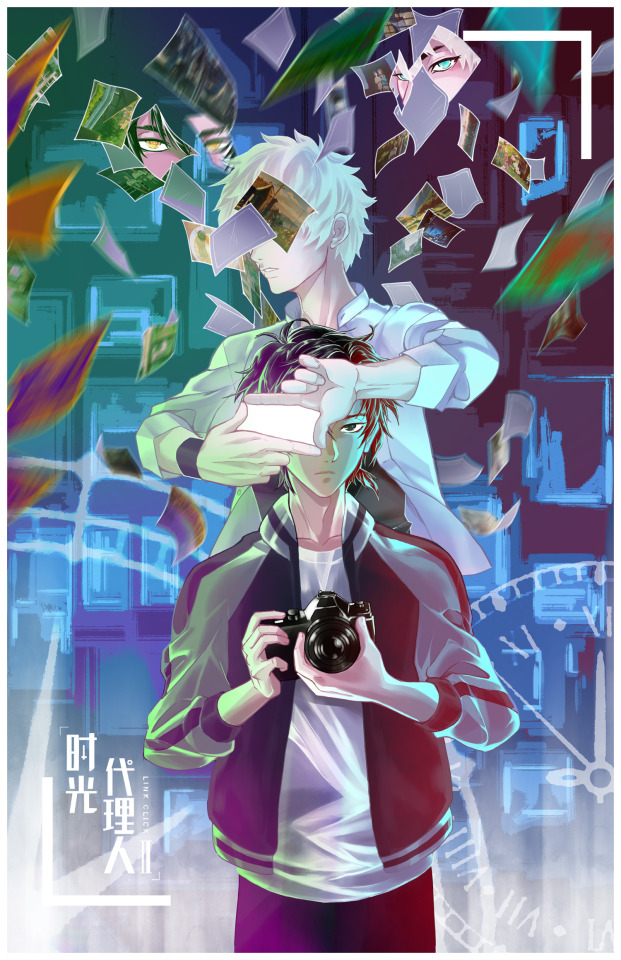


《时光代理人》 Link Click
If you haven’t seen Link Click, I highly recommend it. A uniquely Chinese show that has a modern-ness and a style that is absolutely irresistible. The crew involved did an amazing job and I can only hope future 動畫 can follow the example.
325 notes
·
View notes
Photo
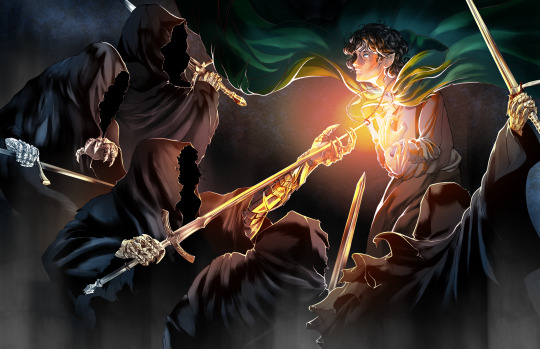
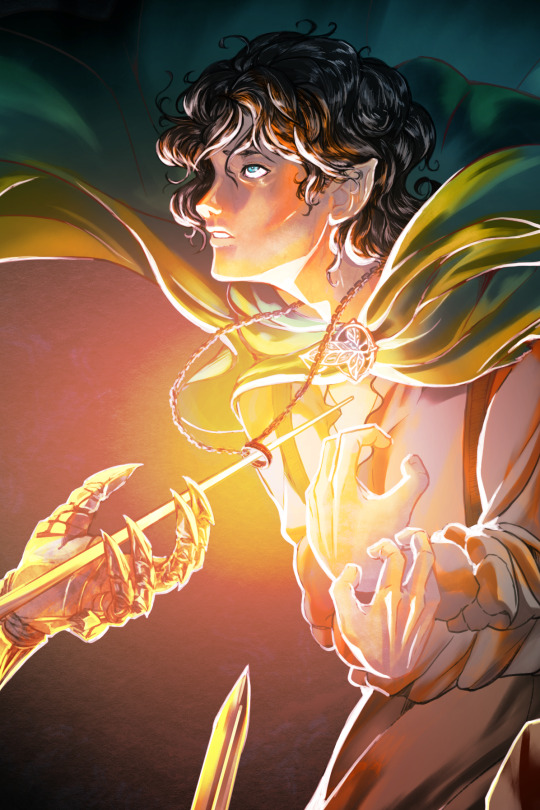
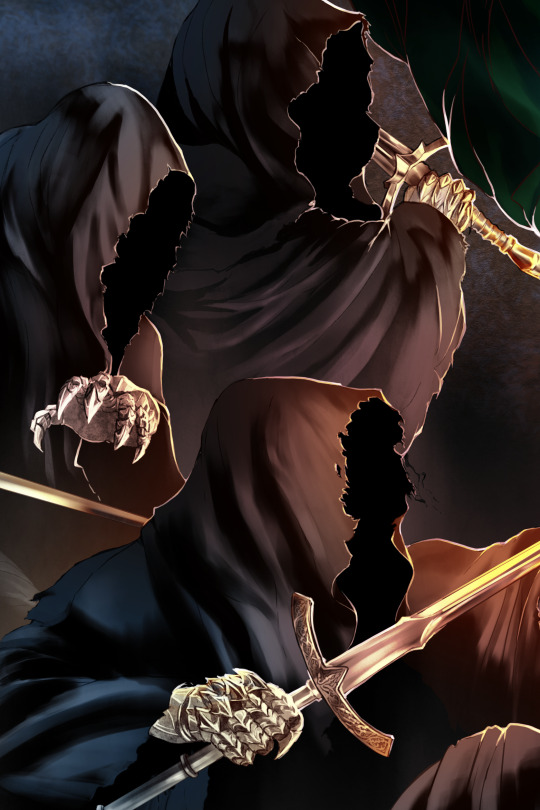
Lord of the Rings: Perseverance and Failure
Recently watched a fan edit of LotR trilogy that broke up all of the movies into episodes. It’s been a fun watching experience and I have to say, the pacing works surprisingly well in that format.
My relationship with Lord of the Rings and Tolkien’s work is probably an outlier from the whole. I have a profound appreciation for Tolkien’s work for it’s innovation, it’s thoughtfulness and it’s mythic proportions. Though as the story and the characters go, they don’t have the same moving effect on me like some other works of fiction and fantasy do. However, where that pure characterization fails, I find a deeper, almost unconscious, meaning that stirs my sprit.
Tolkien’s philosophy instilled a mythical nature into this work, where you can see the etchings of a man wracked by war and how he resolved those traumas in his own mind. The friend’s he made and lost along the way. The feeling of being separated but still holding faith in their return. Seeing how Tolkien took those trauma’s, anxieties and guilt and transformed them into something productive and miraculous is a level of authenticity that has and should rightly be admired.
For example, on the surface, Frodo as a character is not particularly compelling to me until I consider and fully appreciate him as a representation. For Frodo is a mirror to our own weakness in character, foolishness in life and ultimate failure against darkness. However, in him we can also see the grace and the strength of spirit to keep persevering and always resist until the end. When it all comes down to it, Tolkien was correct. The acts of small and ordinary folk that keep the darkness at bay.
8 notes
·
View notes
Photo



Lord of the Rings: Perseverance and Failure
Recently watched a fan edit of LotR trilogy that broke up all of the movies into episodes. It’s been a fun watching experience and I have to say, the pacing works surprisingly well in that format.
My relationship with Lord of the Rings and Tolkien’s work is probably an outlier from the whole. I have a profound appreciation for Tolkien’s work for it’s innovation, it’s thoughtfulness and it’s mythic proportions. Though as the story and the characters go, they don’t have the same moving effect on me like some other works of fiction and fantasy do. However, where that pure characterization fails, I find a deeper, almost unconscious, meaning that stirs my sprit.
Tolkien’s philosophy instilled a mythical nature into this work, where you can see the etchings of a man wracked by war and how he resolved those traumas in his own mind. The friend’s he made and lost along the way. The feeling of being separated but still holding faith in their return. Seeing how Tolkien took those trauma’s, anxieties and guilt and transformed them into something productive and miraculous is a level of authenticity that has and should rightly be admired.
For example, on the surface, Frodo as a character is not particularly compelling to me until I consider and fully appreciate him as a representation. For Frodo is a mirror to our own weakness in character, foolishness in life and ultimate failure against darkness. However, in him we can also see the grace and the strength of spirit to keep persevering and always resist until the end. When it all comes down to it, Tolkien was correct. The acts of small and ordinary folk that keep the darkness at bay.
8 notes
·
View notes
Text
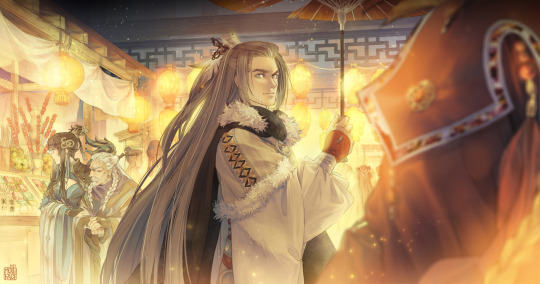

「那,我們一起回老家吧」
Follow me on → Twitter and Instagram
🚫DO NOT REPOST MY ART WITHOUT PERMISSION!
55 notes
·
View notes
Photo
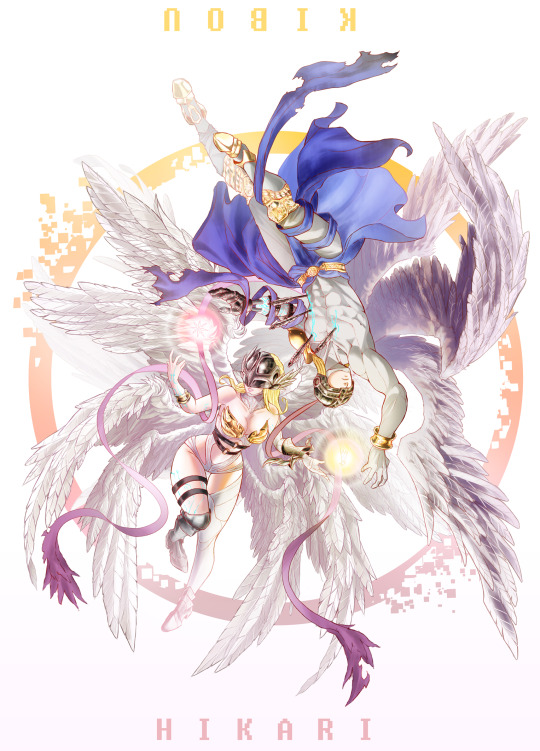


Finally got a chance to watch Digimon Adventure: Last Evolution Kizuna. It’s been a long time since I’ve draw Digimon. And any long time followers know how much I love the Ange- evolution line. So I had to do a piece for old time’s sake. I kept closer to the original design than I used to in my younger days, but still added my own touches (°◡°♡)
My thoughts about the Kizuna/Adventure 01:
Over 20 years later and I still find Digimon to be one of those series that I never quite grow out of. That’s a good thing, of course. Digimon Adventure 01 was, like many others my age, a foundational experience with a non-episodic show. It was my introduction into characters with internal struggles and real growth and change. Even as a kid I had that sense that these characters were different from the rest of the characters that populated those old later 90s tube TVs.
Keep reading
640 notes
·
View notes
Photo

My tribute to Arcane. What a fantastic series. This is the gold standard to what every video game adaptation should be- a real story and characterization first. Lovely work from all of the animators and writers who worked on this project. Truly an inspiration.
1K notes
·
View notes
Photo


Chapter 2 of #MessengerToGevurah, is finished!
Thank you everyone for all of the lovely support so far!
Messenger to Gevurah is a free to read fantasy Webcomic, check it below:
Mobile formats
Tapas: tinyurl.com/y6s9g2vk
Webtoon: tinyurl.com/y2agt3d7
Desktop formats:
Homebase: messengertogevurah.net
Flowfo: tinyurl.com/y6bdbm72
To celebrate this milestone, we will be holding an ama! Ask us anything, whether it's about the story so far, the comic making process, or just general art/writing questions!Just comment below!
#webcomic#webcomics#messenger to gevurah#mtg#original#original character#original comic#fantasy comics#indieart#indiecomics#indiecomic#OC#oc art#oc comic
6 notes
·
View notes
Photo



Finally got a chance to watch Digimon Adventure: Last Evolution Kizuna. It's been a long time since I've draw Digimon. And any long time followers know how much I love the Ange- evolution line. So I had to do a piece for old time's sake. I kept closer to the original design than I used to in my younger days, but still added my own touches (°◡°♡)
My thoughts about the Kizuna/Adventure 01:
Over 20 years later and I still find Digimon to be one of those series that I never quite grow out of. That’s a good thing, of course. Digimon Adventure 01 was, like many others my age, a foundational experience with a non-episodic show. It was my introduction into characters with internal struggles and real growth and change. Even as a kid I had that sense that these characters were different from the rest of the characters that populated those old later 90s tube TVs.
Looking back in retrospect, there’s a lot of powerful ideas in Digimon- from the characters to the (criminally underutilized) lore. Somewhere along the way I ended up conceptualizing Digimon as my generation’s The Lion the Witch and the Wardrobe. As ridiculous as that sounds on premise, there’s a lot to be said about a coming of age story featuring kids living on the precipice of a new era. Being thrown into another world, forced to survive and sacrifice. And in the end gain the essential virtues they need to return back into their world and prosper in this new (Digital) age.
The kids struggled with real problems that required virtue, not power, to overcome. Taichi had to learn the balance between courage and foolhardiness, Yamato had to deal with the anger of his parents’ divorce, Koushiro had to allow himself to be vulnerable and accept his adopted parent’s love as genuine love, etc. Each kid had their personal challenges and they grew in spite of them
And that’s the rub, really. The cast of Digimon not only grew older, they grew up. Which is why I’m so glad this final movie was made. I largely ignored Tri due to its poor story and animation, but this movie more than made up for it in my mind. It was the goodbye I wanted to see- the closure I needed for these childhood heroes.
It’s not a perfect movie- but neither was the original series. Yet it has heart and it hit me in all the right places. I was thankful for the emotional value it gave me. Emotional value that enhances the foundation Adventure 01 gave me. While I wish we got more time with the other kids, or at least got some shorts afterwards about Koushiro, Sora, Jou, Mimi, Takeru & Hikari’s final goodbye- I’m thankful we got to be there for Taichi and Yamato’s.
In the end, I can’t say ‘goodbye’ to Digimon. Instead, it's better to just say...
“Thank you, Digimon”
#Digimon#digimon kizuna#digimon last evolution#デジモン#デジモンアドベンチャー#angemon#Angewomon#my art#digimon adventure
640 notes
·
View notes
Photo
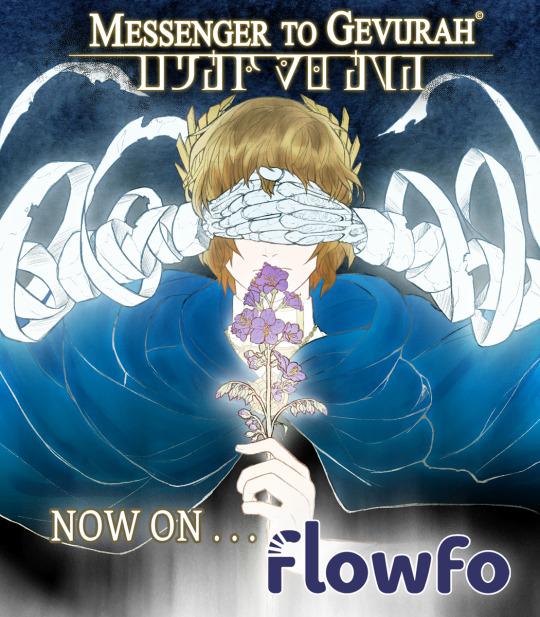

We are very excited to announce our original fantasy webcomic Messenger To Gevurah will now be mirrored and updated weekly on flowfo.me
>HERE: flowfo.me/artwork/MessengerToGevurah/Messenger-To-Gevurah---
FlowFo is new multi-format webcomic platform with a fantastic desktop & mobile reader. If you want to enjoy the comic on mobile in it's original format, this platform's app is a great option! I highly recommend this platform for any comic artists or content creators looking for good alternatives to the webtoons format.
#original#original character#OC#webcomics#webcomic#comic#comics#indiecomic#indiecomics#making comics#webtoons#taptastic#messenger to gevurah#my art
8 notes
·
View notes
Photo


SPECIAL ANNOUNCEMENT!
Chapter 1 of Messenger To Gevurah is finally published! To celebrate, @mouiface and I are having a Q&A! You can submit your questions by commenting below or emailing [email protected]. Answers will be released on 8/25, but we have plenty of bonus content until then, so stay tuned!
And if you haven’t read Chapter 1 yet, please check it out! We have two formats for your viewing pleasure
Traditional Manga format: https://messengertogevurah.net/
Mobile format: webtoons or Tapas
Check it out and let us know what you think! And thank you for all of the support so far<3
4 notes
·
View notes
Photo


SPECIAL ANNOUNCEMENT!
Chapter 1 of Messenger To Gevurah is finally published! To celebrate, @mouiface and I are having a Q&A! You can submit your questions by commenting below or emailing [email protected]. Answers will be released on 8/25, but we have plenty of bonus content until then, so stay tuned!
And if you haven’t read Chapter 1 yet, please check it out! We have two formats for your viewing pleasure
Traditional Manga format: https://messengertogevurah.net/
Mobile format: webtoons or Tapas
Check it out and let us know what you think! And thank you for all of the support so far<3
#messengertogevurah#mtg#webcomic#webcomics#comic#comics#indieart#indiecomic#indiecomics#Original Work#original art#original content#oc#my art
4 notes
·
View notes
Photo
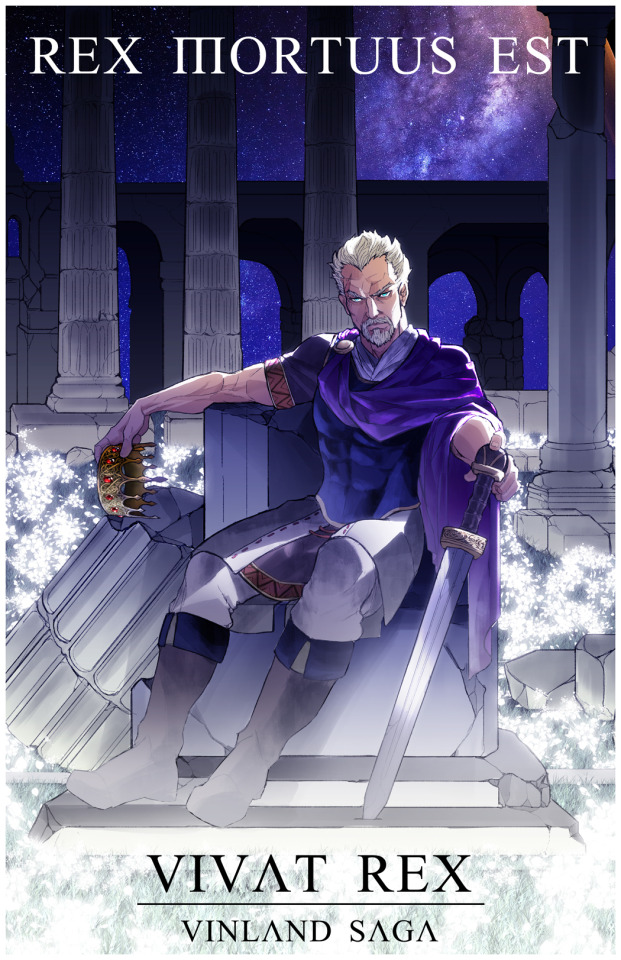
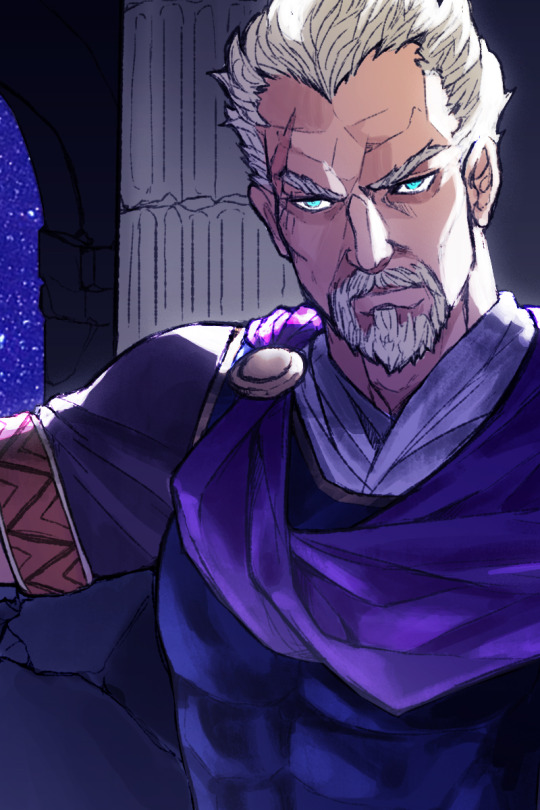

Vinland Saga is one of those rare shows that really scratches all of my particular itches. Being a fan of history (particularly Ancient Mediterranean to late Eastern Roman [Byzantine] periods), I had a bit of a hard time judging this show objectively. A lot of the time I was just excited to see little known historical concepts being brought to life. The author’s (Yukimura) ability to bring those concepts forward was one of the most exciting and heart touching experiences I’ve had with an anime recently.
But this show was more than just historical pomp in the vein of GoT or Vikings. Yukimura demonstrated a masterful understanding of historical concepts and difficult to grasp psychological concepts. Psychological mechanics that have been a part of the human mind since the first writings. The same angels and daemons we wrestle with today are the same that Socrates grappled with over 2000 years ago. As such, the beauty of Vinland is twofold- part psychological and part historical
Vinland is one of the best depictions I’ve ever seen of the psychological process known as individuation. This is the process by which the high conscious assimilates with the base instincts of the unconscious. The goal is to conceptualize the worst of our psyches and fully integrate those part- not pushing them aside, sweeping them under the bed or trying to get rid of them- but fully accepting these rotten and horrible aspects of our mind as a part of the whole. Not defining the whole- but having a vital say in it.
We see this process of individuation via Thorfin. Aspects of his psyche being represented by his two father figures – Thors and Askeladd. These two ideas rage within Thorfin until finally, the base unconscious desires for revenge takes grasp, but the seed of Thors still remain. The rest of the series (post-prologue), while not nearly as exhilarating as the prologue, I find is so much more cathartic. Seeing Thorfin swing wildly between the higher ideas of Thors and the practical instincts of Askeladd, was a wrenching display of true strength. It reminds me of the Greek word Praus- which loosely translates to meek or gentle. But the more accurate translation would be “having strength yet refusing to show it”. In that sense, to be strong is to be gentler and meeker- not weak, but praus.
The second fold to Vinland’s brilliance is the historical reverence the story has, not only to the 11th century aesthetics but to the 11th century mind. In our modernity, it can be somewhat hard for us to relate to the voices of the past. For the past 100 years, we have reached a zenith in the human condition that doesn’t require us to interact with the cruelty of nature. This has made it all too easy for us to look down at those who came before us with a judgement and scorn for not reaching the same moral conclusions that we hold in sacrosanct.
The road we currently walk on was built by the moral progressions of history. Yukimura seems to understand this well- it was a beautiful experience seeing characters struggle over the simple concept of love. Or seeing the amount of nuance and detail he put into Thors’ stance against slavery being contemporaneously singled out as not only bizarre but unwise. This is the hurdle that those who came before us had to leap over.
History is more than just dead men and dates scrawled on a timeline. History is proof of our own making, and to forget that is to show a grave ingratitude for our own inheritance. For the men in history were not just cogs in a machine, but they were people with desires, hopes and most importantly, dreams. Some dared to dream of a land far, far to the west, across the sea. A warm and fertile land, untouched by war or slavery. And even though that perfect dream had to be distorted and disfigured when coming into contact with the realities of a cruel world- that doesn’t change the dreams of those who came before us. And that is an encouraging thought.
"History is the memory of the human race. For an individual to wake up with no memory would be devastating... Although our understanding of the past cannot affect the past, it can affect the future. Where beliefs are not checked against facts, but instead facts must meet the test of ... the prevailing vision, we are in the process of sealing ourselves off from the feedback of reality. Heedless of the past, we are flying blind into the future." -Thomas Sowell 2005
336 notes
·
View notes
Photo
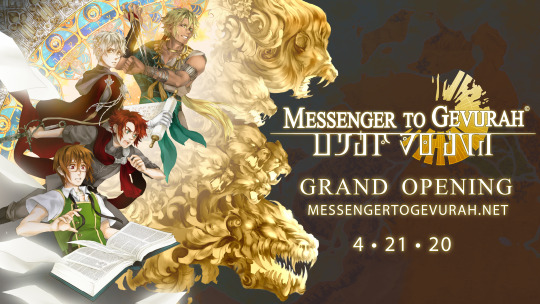
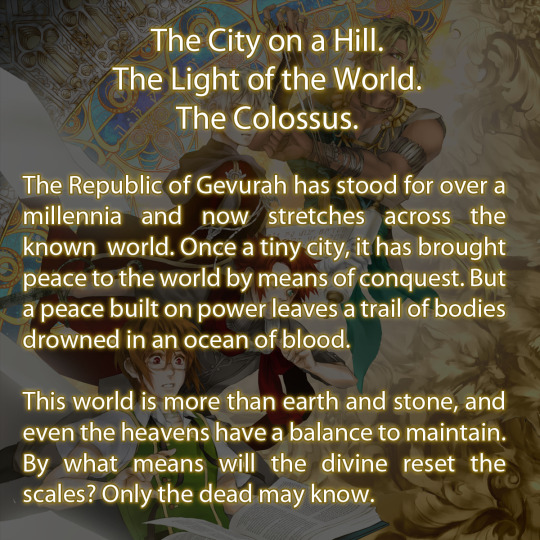

WEBCOMIC LAUNCHES TODAY!
The prologue has been dropped, so head on over to messengertogevurah.net to read it for free!
Everything has been made from scratch. It's been a lot of work and a lot of fun. Learned new skills and refined old ones, and we're only at the start.Excited to see where this goes
Thanks you everyone for all of the support and I hope you enjoy the start of this story!
2 notes
·
View notes
Photo
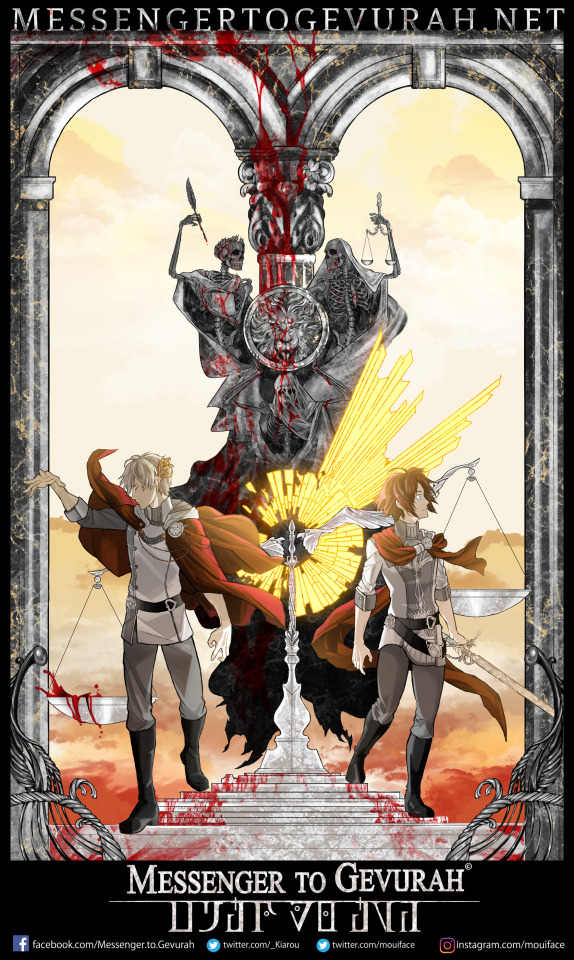

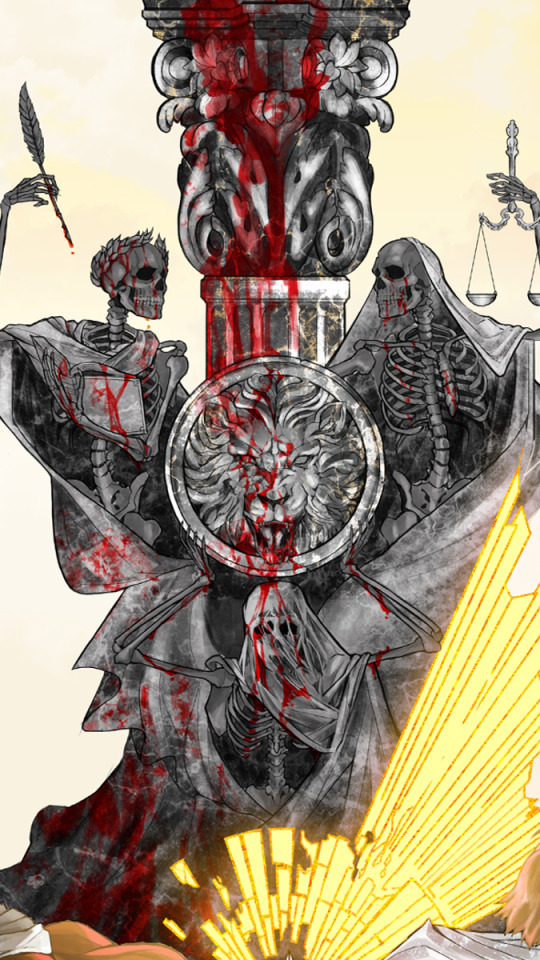
This is the last promo I'll drop for MESSENGER TO GEVURAH.As mentioned here
Messenger to Gevurah is a high fantasy, free to read webcomic that will be updated weekly. It will be available at messengertogevurah.net
Join us as we delve into the land of Regium, where a tiny city by the name of Gevurah has brought peace to the world by means of conquest. But a peace built on power only leaves a trail of bodies in an ocean of blood.
This world is more than earth and stone, and even the heavens have a balance to maintain. By what means will the divine reset that balance and judge the judgers- only the dead may know.
MtG is created by @mouiface and myself that has been over two years in the making.
Please follow us at the links below to stay up to date. We will be releasing little teasers here and there until it’s the website is open.
FB→ facebook.com/Messenger.to.Gevurah
IG→ instagram.com/mouiface
Twitter→ twitter.com/_Kiarou & twitter.com/mouiface
I look forward to your support and hope you enjoy the story!
#my art#original art#art#comics#comic#webcomic#webcomics#pics#beautiful#indie#indieart#indiecomics#indiecomic
5 notes
·
View notes
Photo
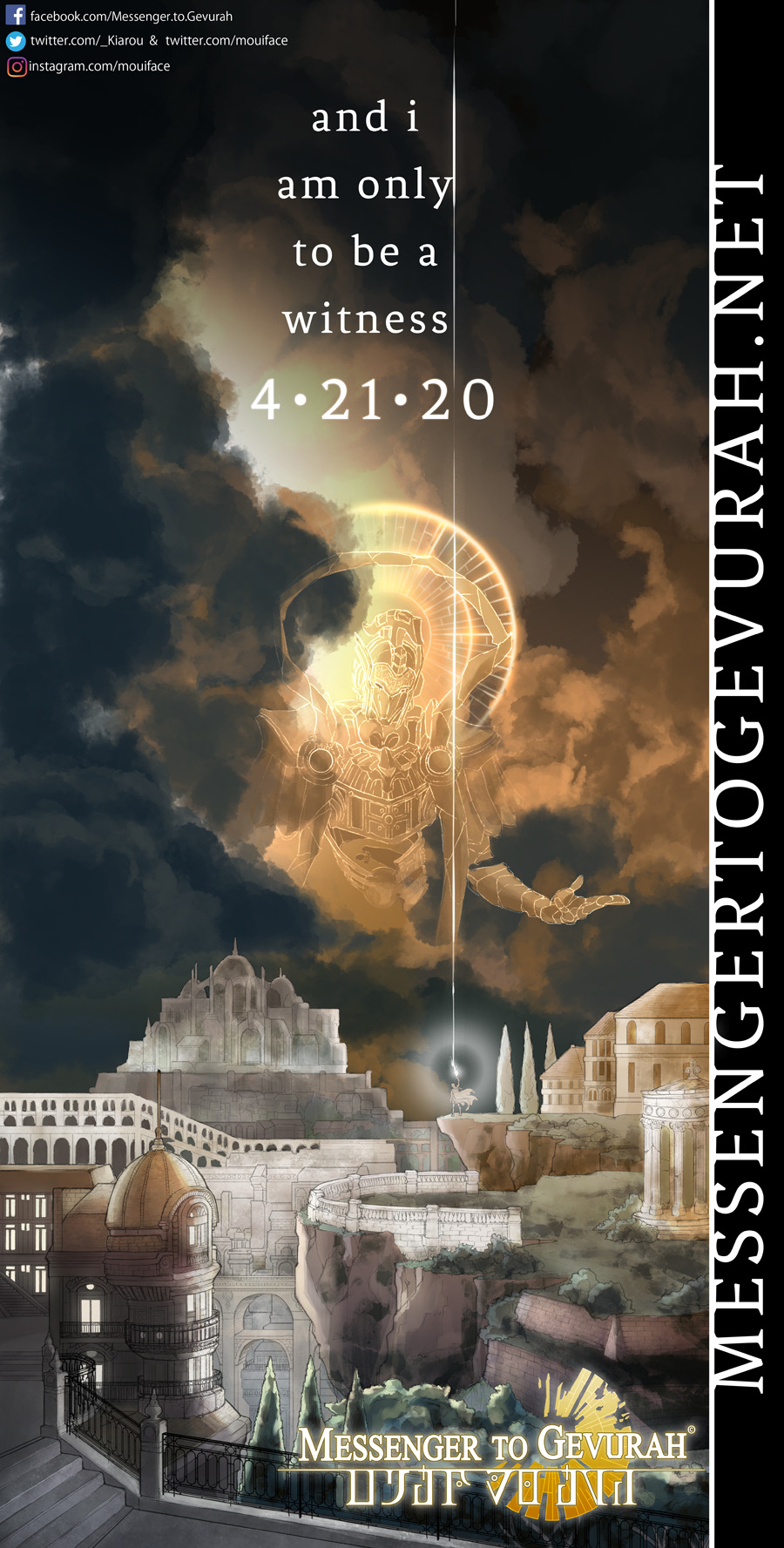
I am very pleased to announce, on 4/21/20 the MESSENGER TO GEVURAH project will be launched. MESSENGER TO GEVURAH is an original fantasy webcomic created by @mouiface and myself that has been over two years in the making. It will be updated weekly and free to read at messengertogevurah.net
Please follow us at the links below to stay up to date. We will be releasing little teasers here and there until it’s the website is open.
FB Page→ facebook.com/Messenger.to.Gevurah/
IG→ instagram.com/mouiface
Twitter→https://twitter.com/_Kiarou & twitter.com/mouiface
5 notes
·
View notes
Photo

I am very pleased to announce, on 4/21/20 the MESSENGER TO GEVURAH project will be launched. MESSENGER TO GEVURAH is an original fantasy webcomic created by @mouiface and myself that has been over two years in the making. It will be updated weekly and free to read at messengertogevurah.net
Please follow us at the links below to stay up to date. We will be releasing little teasers here and there until it’s the website is open.
FB Page→ facebook.com/Messenger.to.Gevurah/
IG→ instagram.com/mouiface
Twitter→https://twitter.com/_Kiarou & twitter.com/mouiface
#webcomic#webcomics#indie#comics#art#artists#original work#my art#messenger to gevurah#messengertogevurah#mtg
5 notes
·
View notes